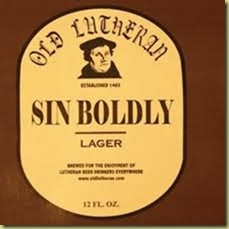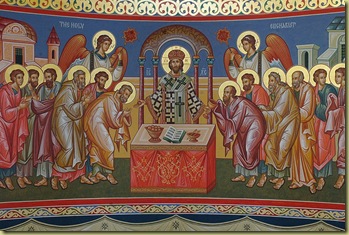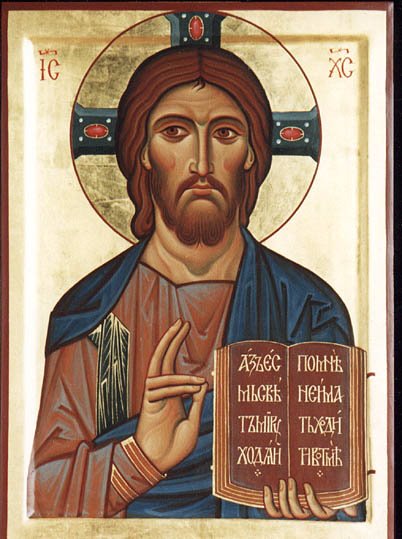Luke 5:1-11; 1 Peter 3:8-15; 1 Kings 19:11-21
In the Name of the Father and of the + Son and of the Holy Spirit.
Regularly, I preach to you about the creative, performative, and life-giving power of the Word of the Lord. Therefore, today I will proclaim to you the effect that the Word of the Lord is to have upon you as children and disciples of our Lord Jesus Christ. For, Jesus’ call, His Word to you, is simple enough: “Follow me.” But, what does that mean? Jesus’ “Follow me” means, “Stop whatever it is that you are doing; stop going down that path upon which you are walking, and turn around and follow me in the path upon which I will lead you.” That is to say, “Listen to me. Say what I say, and do what I do. Trust in me. Be my disciple – one under my discipline and instruction.”
For, what did the fishermen, Simon, Andrew, James, and John do when Jesus called to them, “Follow me?” They immediately left their nets and their boats and they followed Him. The Word of Jesus changed them in some significant ways. Now they would listen to every Word of Jesus and take it into themselves. They would meditate on it, pray with it, and do it, not in fear of judgment if they failed, but in the freedom of the Gospel that the Lord would work with them and through them and despite them if necessary to accomplish the work for which He was sent. They would still be fishermen, but they would be fishermen with a new motivation, purpose and goal. Jesus signified this change by saying to them, “Follow me, and I will make you become fishers of men.” They would go to places they never would have dreamed of going to before, and they would do things that they never would have dreamed of before. And, they would go to these places and do these things without fear – fear of failure, fear of success, fear of bodily harm, fear of death. They would do bold things, even foolish things – like dropping their freshly mended nets into the deep after a toilsome night of unsuccessful fishing – at the Word of Jesus, without fear.
And, what did Levi do when Jesus called to him, “Follow me?” He rose at once and followed him, leaving his tax collector’s booth behind. Who would do such a thing, but one changed, emboldened, and empowered by the Holy Spirit through the Word of the Lord? Likewise, each of the other disciples, in their own way, hearkened to Jesus’ Word, left their old ways and lives and livelihoods behind and followed Him. For, to follow Jesus is to “come under His influence, to learn from Him.” It is to become a disciple, one “who lives under the influence of the Word of Jesus and consciously wants to do just that.”
The Churchly word for “calling” is vocation. Each of us has a calling, a vocation; indeed, each of us has many vocations. Your vocation is what you are called to do and to be. Your vocation is not merely your job or profession, though it is certainly that, but your vocation is God’s calling for you to do and to be as His child in this world. Most of your vocations are yours simply by virtue of who you are: Are you a son or a daughter? Are you a father or a mother? Then, being a faithful and obedient son or a mother is one of your vocations. That is to say, you are to not be merely a son or a mother biologically, according to nature, but you are also to be a disciple of Christ and a child of God in those vocational roles. Therefore, in your holy calling as a son or a mother, you will be as the disciples, trusting in the Word of the Lord, living under the influence of Jesus and consciously wanting to do just that.
Additionally, you have many, many other callings, vocations: Are you an employee or an employer? Are you a teacher? A police officer? A bank teller? A butcher? A baker? Or, a candlestick maker? Then, you are to do and to be your vocation as did the disciples, trusting in the Word of the Lord, living under the influence of Jesus and consciously wanting to do just that. That means that you will consciously see yourself and your vocation as something divinely given, as a gift of God and an extension of His grace, mercy, love, and compassion to others. Even the most mundane, inglorious, and boring work is holy and a means through which the Lord works to serve and preserve His people. Thus, Luther famously wrote about vocation saying that a mother changing her child’s soiled diaper is doing a holier work than any monk reciting his prayers. His meaning is that, though our God-given callings, vocations, are often not very glorious from a human and worldly perspective, nevertheless they are both necessary and glorifying of God when they are performed in Christian love, mercy, compassion, humility, and selflessness – not for one’s own glory, but God’s.
However, the as the result of our fallen nature, we are naturally impressed and drawn to miraculous signs and wonders. We also value and glorify things that are spectacular or that seem to be wise in our eyes. But, the power of God to save men is not in miraculous signs and wonders and other spectacles, nor is it in the wisdom of men, just as it was not in the wind and the fire and the earthquake which Elijah experienced, but, rather, in a still small voice. That still small voice is the preaching of Christ crucified, the Gospel.
Likewise, the preaching of Christ crucified is the net in the story of the Great Catch of Fish. Without the net, the disciples could catch nothing at all. And, even with the net, often it hardly seems sufficient to the task, even at verge of breaking so that all is lost. Yet, the preaching of Christ crucified is the “power of God and the wisdom of God.” The fishermen did as Jesus commanded, even though they thought it foolishness, having toiled all the night and caught nothing. Thus, they let down the nets into the deep at Jesus’ Word, and the catch was so great that the nets were breaking. Even when they called for help from other fishermen, the catch was so great that their boats began to sink. While the preaching of the cross will often seem ineffective and insufficient, there will be times when the success it grants will be so great that you will fear that you will not be able to manage it. Both results serve to remind you and to discipline you that it is not you at all, but the Word of the Lord that does the work and produces the fruit of faith. Moreover, you need not have the vocation of pastor to preach Christ crucified, but you preach this Good News in your vocations, whatever they may be, when you do them and be them trusting in the Word of the Lord, living under the influence of Jesus and consciously wanting to do just that.
“Do not be afraid;” Jesus says to you, “from now on you will be catching men.” Perhaps you do not feel worthy or up to the task? Good! That’s alright! In truth, that is where you need to be to be a disciple of Jesus – broken, unworthy, unable, having little or no faith, maybe even being an enemy of Christ! For, consider Peter. Peter was a common, ordinary fisherman. Still, Jesus called him, and Peter followed. Peter wasn’t perfect; in fact, he was far from it, unable to understand that Jesus had to suffer and die and rise again, and then betraying His Lord and Master three times on the night he was arrested and tried. And, what about Paul? Paul was an enemy and persecutor of Christ, arresting and even killing some of the earliest of Christians. Both men were common sinners, just like everyone else. But, the Church of Jesus Christ is not built on the foundation of our great works, our great faith, our great morals, or our great wisdom and intelligence, but the Church of Jesus Christ is built on Christ and the confession of Him as the Son of God crucified for the sins of all mankind and raised for our justification. The Church is a church of sinners, but also a source of forgiveness, where one can get help and be cleansed. Therefore, the Church is not a memorial for saints, but a hospital for sinners. And, as the saying goes, it can always use one more.
This is what Peter recognized and confessed when he fell down at Jesus’ knees and said, “Depart from me, for I am a sinful man, O Lord.” However, such a confession will not be left unanswered, but will always receive Jesus’ absolution, “Do not be afraid.” And, with the absolution comes a sending, a calling, a vocation, “From now on you will be catching men.” This is the ongoing vocation of all of Jesus’ disciples, carried out in and through the unique and various callings we all have. “However God calls us, he calls us for this: to be with Jesus and learn from Him, to live with Jesus and receive what only He can give.” It’s not about how great or little faith you have, but it’s about following Jesus, trusting in Him, listening to Him, saying what He says, and doing what He does. “The main thing is to stay with Jesus and follow Him. He takes care of the rest.” Thus St. Paul wrote to the Church in Corinth: “Only let each person lead the life that the Lord has assigned to him, and to which God has called him. This is my rule in all the churches.”
And, that you may be absolved, strengthened in faith, encouraged and uplifted in grace, and empowered to do and to be your vocations in Christ, your Lord and Master is present with His life-giving and sustaining meal of body and blood that you may eat and drink and be satisfied and that with ears to hear and hearts to believe you may be fishers of men to the glory of God the Father, in His Most Holy Son, through His Holy Spirit.
In + the Name of Jesus. Amen.







